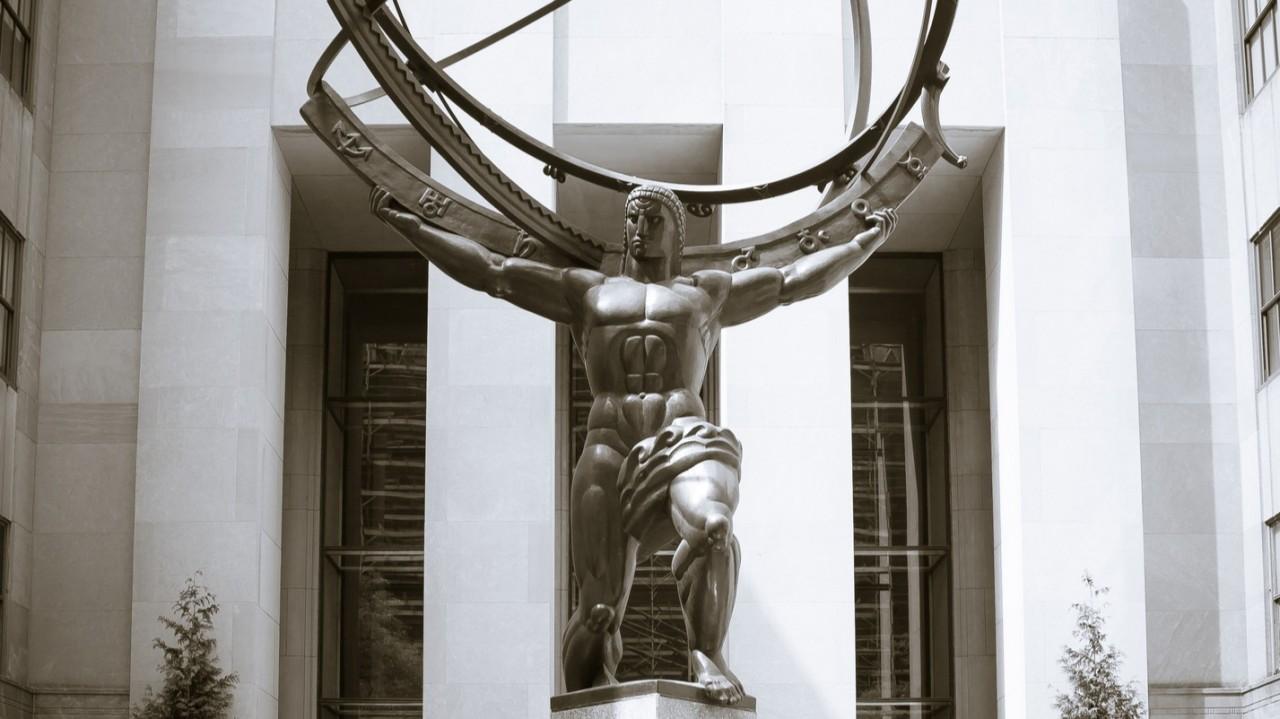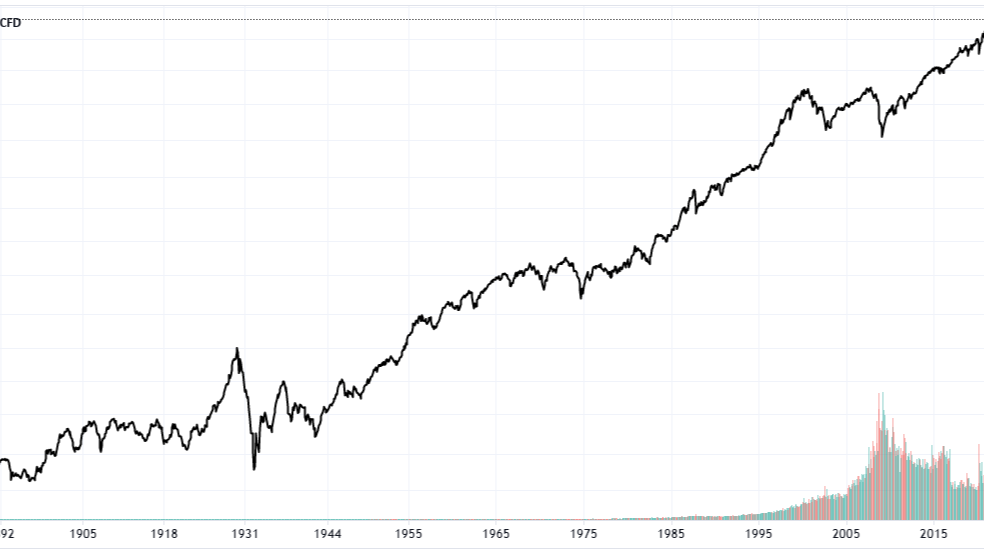Spent the past few days at The Nantucket Project, a unique gathering with a worthy mission, started by a buddy from my Brown days, a fellow entrepreneur who came to appreciate the importance of storytelling. Its power to propel us forward. But markets didn’t take a time out. Nor did Xi Jinping, who hit a breaking point and announced an abrupt policy U-turn, not unlike his late-2022 Covid lockdown reversal. I discussed it all with Marcel Kasumovich, who tops my list of people with a deep understanding of global policy, financial plumbing, and markets. He had so many thoughts that I had him write this week’s note in its entirety:
Overall: “We need to establish a strong benchmark for selecting and employing people, conscientiously implement the ‘three exemptions,’ and support those who take responsibility and get things done.” This statement from the extraordinary Politburo meeting left no doubt about the leadership’s intentions. Those who demonstrate “the courage to take responsibility and innovate,” in Xi’s words, will be rewarded, with exemptions, a “responsibility and punishment” waiver for those acting on policy guidance. The thousands of financial executives who exited their positions and the Party since August serve as a reminder to those who resist. The Politburo followed sweeping actions taken by the central bank, in solidarity with PBOC governor joining the heads of the NAFR and the CSRC in announcing the measures. These included rate cuts, property loans for unsold homes, and equity buyback facilities - policies that underscore China’s desire for firm control over its economy, directing the capital of savers like the strings of a puppet rather than relying on the invisible hand of the market. China’s economy is cluttered with unsold homes, unfinished projects, and unused land, totaling an astonishing $4.1 trillion at mid-year. This isn’t China’s first financial hurdle: restructuring the FX market in 1994, bank overhauls in 1998 and 2004, asset management crackdowns in 2015, and the COVID response all showcased the country’s approach to handling economic strains. Financial repression and the central bank’s balance sheet softened these shocks before - and once again, this playbook of control is in motion. But as China’s economy grows more complex, maintaining this control becomes increasingly difficult. The global economy is infinitely more complex and managing it through sheer willpower alone is impossible. Reform, not stimulus, requires real courage. And it’s a global issue. A good economy is one that works for the many, not the few. Markets have a way of identifying and enforcing necessary reforms for that outcome, and nations that heed this call will strengthen their standing - near-term pain for long-term gain. After all, no country can simply inflate its way to prosperity.
Week-in-Review: Mon: Kashkari expects two 0.25% cuts at the remaining 2024 Fed meetings, Goolsbee forecasts “many more” reductions over the next year, Trump accused China of failing to honor a deal he made with Xi to buy $50 billion is US agricultural exports and vowed to raise the matter if he returns to the White House, Biden proposes banning Chinese vehicles from US roads with software crackdown, Italy’s economy finally back to its pre-financial crisis peak (decade after most other advanced economies), Iran’s president said he’s prepared to ease tensions as long as he sees Israel doing the same, Israeli air strikes on Hezbollah targets in Lebanon killed at least 356 people, US will send a “small number” of additional troops to the Middle East, Russia plans to raise defense spending to record $142bln in 2025, US PMI mfg 47.0 (48.6e) / serv 55.4 (55.2e) / comp 54.4 (54.3e), Eurozone Flash PMI mfg 44.8 (45,6e) / serv 50.5 (52.5e) / comp 48.9 (50.6e), UK PMI mfg 51.5 (52.2e) / serv 52.8 (53.5e) / comp 52.9 (53.5e), S&P +0.3%; Tue: China unleashes swath of stimulus measures including cuts to its benchmark interest rate & $113bln funding for local stock market and support for property sector, RBA maintains rates unchanged as expected, OPEC expects oil demand to grow to 120.1m bbl/d by 2050 (+18%), Hezbollah confirms Israel killed top commander, Caroline Ellison gets 2yr prison sentence for FTX fraud, S&P 500 closes at record high for second consecutive session, US Cons conf 98.7 (104.0e), German Ifo Business sentiment 85.4 (86e) / current conditions 84.4 (85.9e), S&P +0.3%; Wed: China weighs $142bn capital injection into top banks, China gives cash handouts to poorest before long holiday, US and allies call for 21-day ceasefire along Israel-Lebanon border after UN talks, Zelensky accused Beijing of pushing a flawed peace plan while aiding Moscow’s attacks, Riksbank cuts rates for a third time by another 25bps to 3.25% and guides to reach 2.75% by year-end, US new home sales 716k (700k e), Russia IP 2.7% (1.8%e), S&P -0.2%; Thu: US lawmakers passed a short-term federal funding bill to keep operating through Dec. 20 (avoiding government shutdown), Saudi Arabia to abandon $100 crude target to regain market share, Mexico lowers key interest rate by 0.25%, SNB cuts by 0.25% as expected to 1%, US money market assets hit record $6.4trln despite Fed cut, Oil slumped for a second day on the prospect of higher Saudi output, Israel’s foreign minister said there will be no cease-fire with Hezbollah “until victory”, NYC Mayor Eric Adams indicted in a federal corruption probe, Harris says keeping domestic control of steel production was more important than possible job losses, PBoC reserve requirement ratio 9.5% (10%p), Turkey Trade balance -4.99b (-4.90b e), US Personal income 0.2% (0.4%e) / spending 0.2% (0.3%e), S&P +0.4%; Fri: Shigeru Ishiba wins vote to become Japan’s next PM (not opposed to rate hikes), China cuts banks' reserve requirement ratio by 50 bps, EU curbs use of Chinese parts in bids for renewable hydrogen subsidies, Hurricane Helene upgraded to Category 4 hits Florida, Chinese property and tech stocks best week on record, Israel strikes Hezbollah and claims to have killed Chief Nasrallah and other top commanders, Core PCE index 0.1% MoM / 2.7% YoY (0.2%e / 2.7%e), Eurozone Consumer Confidence -12.9 (-13.4p), Tokyo CPI 2.2% YoY (2.6%p) Core Tokyo CPI 2.0% YoY (2.4% p), UMich Consumer Sentiment 70.1 (69.0e) / Current Conditions 63.3 (62.9e), France CPI 1.2% (1.6%e), US Rig Oil Rig Count 484k (488kp), Canada MoM GDP 0.2% (0.1%e), Brazil MoM inflation 0.67% (0.47%e), S&P -0.3%.
Weekly Close: S&P 500 +0.6% and VIX +0.81 at +16.96. Nikkei +5.6%, Shanghai +12.8%, Euro Stoxx +2.7%, Bovespa +1.3%, MSCI World +1.4%, and MSCI Emerging +6.2%. USD rose +1.4% vs Mexico, +1.0% vs Russia, +0.1% vs India, +0.1% vs Turkey, and flat vs Euro. USD fell -5.1% vs Ethereum, -4.7% vs Bitcoin, -3.4% vs Chile, -1.8% vs South Africa, -1.4% vs Australia, -1.4% vs Brazil, -1.1% vs Yen, -0.8% vs Sweden, -0.5% vs China, -0.4% vs Sterling, -0.4% vs Canada, and -0.2% vs Indonesia. Gold +0.8%, Silver +1.0%, Oil -4.0%, Copper +5.9%, Iron Ore +5.7%, Corn +4.0%. 10yr Inflation Breakevens (EU -2bps at 1.72%, US +1bp at 2.16%, JP +7bps at 1.19%, and UK +2bps at 3.38%). 2yr Notes -3bps at 3.56% and 10yr Notes +1bp at 3.75%.
2024 Year-to-Date Equity Index Close: Argentina +55.4% priced in US dollars (+85.8% priced in pesos), Malaysia +27% priced in US dollars (+14.1% priced in ringgit), Taiwan +23.2% (+27.3%), HK +21.6% (+21%), NASDAQ +20.7% priced in US dollars, South Africa +20.4% (+12.8%), S&P 500 +20.3% in US dollars, India +19.7% (+20.5%), Spain +19.4% (+18.5%), Hungary +19.4% (+22.9%), Japan +17.6% (+19%), MSCI World +17.6% in US dollars, Netherlands +17.5% (+16.6%), Belgium +17.4% (+16.5%), Germany +17.2% (+16.2%), Ireland +16.3% (+15.4%), Italy +15.3% (+14.4%), Greece +14.5% (+13.6%), Philippines +13.8% (+15.2%), Singapore +13.6% (+10.3%), Turkey +13.2% (+30.9%), Euro Stoxx 50 +13% (+12.1%), UK +12.8% (+7.6%), Czech Republic +12.8% (+13.8%), Canada +11.7% (+14.3%), Poland +10.9% (+8.3%), Denmark +10.9% (+10.1%), Russell +9.7% in dollars, Switzerland +9.5% (+9.8%), Australia +9.4% (+8.2%), Sweden +9.4% (+10.2%), Thailand +8.2% (+2.4%), Indonesia +7.9% (+5.8%), Israel +7.8% (+10.8%), Austria +7% (+6.2%), Norway +6.1% (+10.2%), New Zealand +5.9% (+5.8%), China +5.1% (+3.8%), France +4.1% (+3.3%), Saudi Arabia +3.4% (+3.4%), Finland +3.3% (+2.5%), Chile +3.2% (+5.4%), Colombia +2.2% (+10.5%), Portugal +0.7% (0%), UAE -1.1% (-1.1%), Korea -1.8% (-0.2%), Brazil -11.5% (-1.1%), Mexico -21% (-8%).
Courage: “The vast majority of party members and cadres must have the courage to take responsibility and dare to innovate,” Xi conveyed with urgency at this week’s Politburo meeting. The timing of the meeting itself reflected the gravity of the situation, being held earlier than usual. The Politburo introduced a rare “responsibility and punishment” waiver, offering protection to officials willing to embrace Xi’s challenge. This marks China’s “whatever-it-takes” moment, where pragmatic policies take precedence: a good economy is one that works.
Courage II: The foundation of Xi’s “courage economy” was laid the day before. PBOC rate cuts will inject 1 trillion RMB in liquidity, while loans for unsold homes can now cover the entire purchase price. The downpayment requirement for second-home buyers was reduced to 15%, in line with first-time buyers. Meanwhile, bank regulators committed to a more gradual increase in capital requirements, and specialized refinancing facilities were established to encourage equity buybacks. These coordinated actions signal a unified directive to stabilize the economy.
Courage III: Deng Xiaoping famously quipped, “It doesn’t matter whether a cat is black or white, as long as it catches mice,” as China began its economic reforms in 1979. Desperate for an effective economy, China sought to balance traditional goals with pragmatic policies. Unlike many emerging markets with lofty objectives, China has managed to execute with its share of world GDP rising from 2% in 1980 to nearly 20% today. How did it avoid the pitfalls of past crises? Through a strong emphasis on domestic control—a policy that does not scale well.
Mousetrap: Take China’s navigation of the 1990s Asia crisis. While its neighbors experienced fierce capital outflows, currency devaluations, and bank failures, China maintained its FX peg at around 8.33 to the US dollar. Stability masked material internal strain, with non-performing loans for Chinese state banks surging to 24% in 1998. But it was a domestic issue—by 1997, FX reserves were eight times greater than short-term external debt. Banks were restructured, imposing losses on domestic savers through reduced returns and financial repression.
Mousetrap II: The repression strategy was repeated in 2004 and 2016 and now underpins the latest policy measures. China’s gross national saving rate is 43% of GDP, a captive audience given limited options for allocating their funds. As a result, these savers endure abysmal rates of return—the dark side of financial repression. It’s far from a free lunch. From bonds to stocks to real estate, this captive audience pays the price for policy through depressed returns. Market economies must do more with less, competing for global capital in freer environments.
Mousetrap III: Will the “courage economy” work? In the near term, almost certainly yes. But its limitations are equally clear. China’s gross national saving rate is falling, shrinking the pool of capital available to plug financial holes in an increasingly complex economy. Leaders cannot strengthen an economy by willpower alone—incentives do the heavy lifting. Financial repression merely defers problems to the next generation, a global issue with more immediate consequences for China’s shrinking population. The time for a new trap to catch the mice may soon come.
Anecdote: “It’s not the mindset of an emerging market. It’s the mindset of an emerging superpower,” said one of the greatest macro investors of all time to me, his eager protege. This time, it was China’s FX revaluation making the headlines - not the investor’s famous predictions of devaluations in the past. “The world mistakes China as ideological. 1979 marked the shift to pragmatism,” he continued, referencing the pivotal moment when Deng Xiaoping opened China’s doors to the world. “It doesn’t matter whether a cat is black or white, as long as it catches mice,” the protege eagerly recalled from Deng, encapsulating the shift to a results-driven economic policy. China’s appearance at the 1979 World Economic Forum marked the beginning of its new economic era. Controlling inflation became a priority, achieved after 15 years of effort. The two-tiered foreign exchange system was replaced in 1994, laying the groundwork for a modern, integrated economy - though not without one last devaluation to prepare for the transition. China managed banking crises internally, with bank recapitalizations in 1998 and again in 2004. These were not the actions of a typical emerging market. “Deng’s approach seems almost ruthless in its pragmatism,” I ventured. And only a decade after the last devaluation, the US Senate demanded an upward revaluation of the currency or else China would face a hefty 27.5% import tariff. Learning from Japan’s painful experience after Plaza Accord, China adjusted on its own terms. “China is rewriting the rules,” the investor remarked, his eyes narrowing as if seeing the threads of history weaving into the present. “Markets must read them carefully…and politicians will need a heavy pen when editing.” The revaluation proved a very profitable day. There were no celebrations, no false glory - just a relentless focus on what comes next, recognizing the shift in the global power dynamic. For China, it wasn’t about winning a battle. It was about redefining the entire game. And I realized the true lesson. This was not just about currency or trade, but about a nation’s unwavering commitment to its vision of the future, one strategic step at a time.
Good luck out there,
Marcel Kasumovich
Disclaimer: All characters and events contained herein are entirely fictional. Even those things that appear based on real people and actual events are products of the author’s imagination. Any similarity is merely coincidental. The numbers are unreliable. The statistics too. Consequently, this message does not contain any investment recommendation, advice, or solicitation of any sort for any product, fund or service. The views expressed are strictly those of the author, even if often times they are not actually views held by the author, or directly contradict those views genuinely held by the author. And the views may certainly differ from those of any firm or person that the author may advise, converse with, or otherwise be associated with. Lastly, any inappropriate language, innuendo or dark humor contained herein is not specifically intended to offend the reader. And besides, nothing could possibly be more offensive than the real-life actions of the inept policy makers, corrupt elected leaders and short, paranoid dictators who infest our little planet. Yet we suffer their indignities every day. Oh yeah, past performance is not indicative of future returns.





